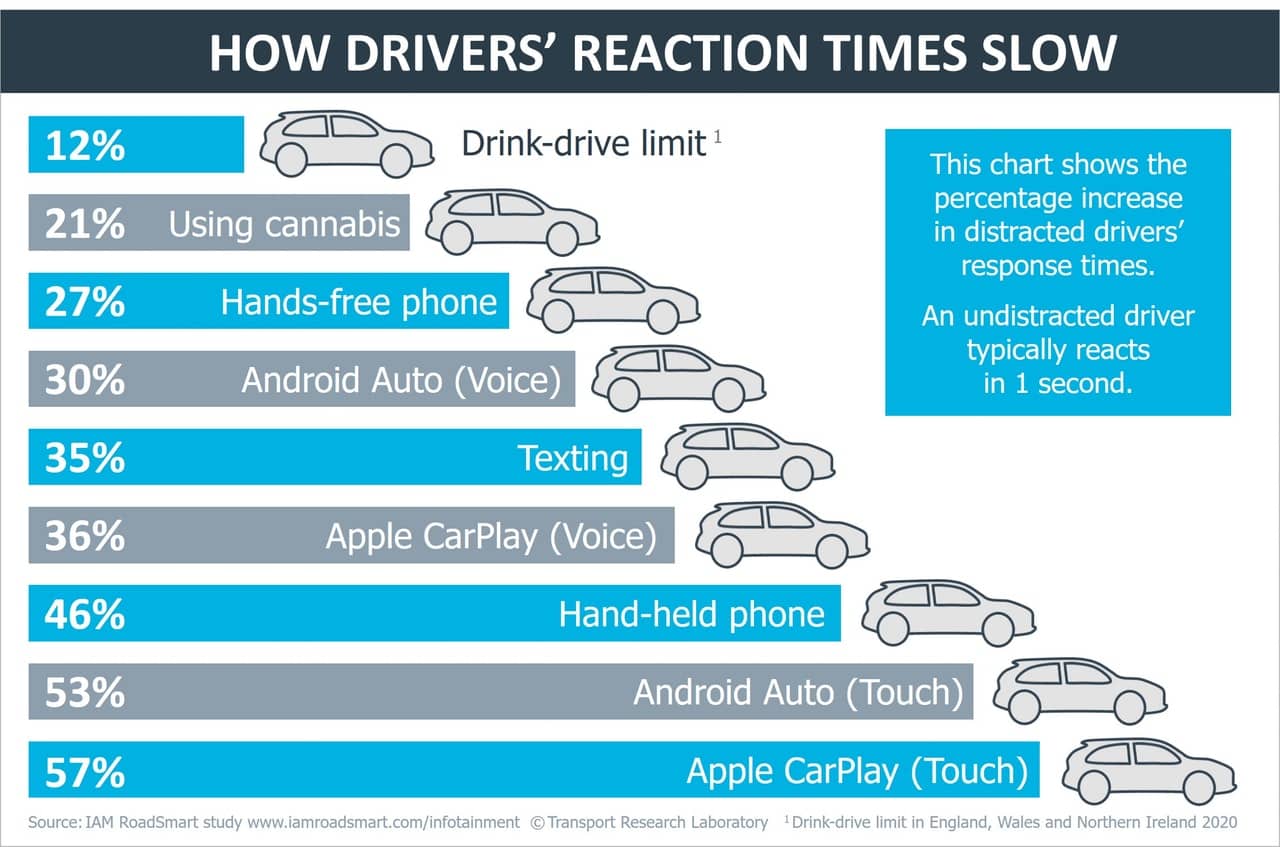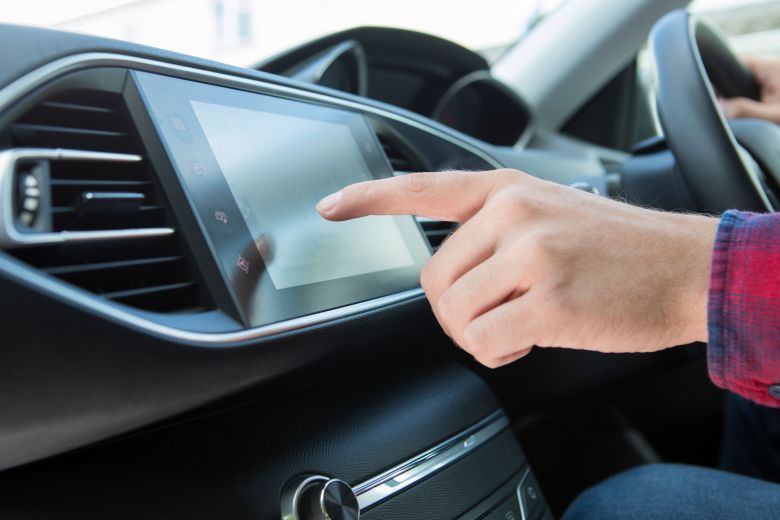Road safety charity I AM Roadsmart compared driver behaviour with Apple CarPlay, Android Auto and no system use on a simulated route.
Tests found that reaction times when using the infotainment systems were five times slower than a person driving at the legal alcohol limit, and significantly slower than someone who had used cannabis.
Stopping distances at motorway speeds increased by 4-5 car lengths, and drivers even took their eyes off the road for up to 16 seconds at a time – the equivalent of travelling for more than 500 metres at 70mph.


RAC sale – up to 33% off*
• Roadside cover from £5.29 a month†
• We get to most breakdowns in 60 mins or less
• Our patrols fix 4/5 breakdowns on the spot

Although drivers slowed their vehicles when using the systems, their ability to maintain a safe distance from the car in front suffered significantly.
They were even found to react more than 50% slower to hazards on the road ahead when engaging with the in-car entertainment controls.
Lane position was also affected as motorists deviated by 0.53 metres when performing navigation tasks with Android Auto, and 0.50 metres using Apple CarPlay.
Reaction times when using touch controls rather than voice control were found to be worse than texting while driving.
- Mobile phone driving laws - what is and isn't illegal?
- Drink driving limits - everything you need to know
- Reporting dangerous driving: how to recognise and report dangerous driving
- More motoring news
Neil Greig, policy and research director at IAM RoadSmart, said: “While previous research indicates that Apple CarPlay and Android Auto perform better than more traditional buttons and controls, the results from this latest study raise some serious concerns…
“Anything that distracts a driver’s eyes or mind from the road is bad news for road safety.”
Using a phone behind the wheel can land you with six points and a £200 fine, while you could be charged with ‘driving without due care and attention’ when using an infotainment system – a charge that results in a £100 fine and three penalty points.
Devices that distract drivers’ attention from the road are linked to up to 30% of road collisions in Europe ever year.
Interestingly, participants underestimated the time they thought they spent looking away from the road by as much as five seconds.
Mr Greig said:“We’re now calling on industry and government to openly test and approve such systems and develop consistent standards that genuinely help minimise driver distraction.”
Is it illegal to drive without shoes?
Get the answer and more useful driving content sent straight to your inbox.








